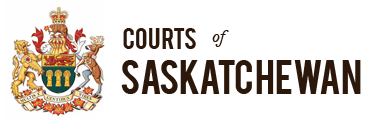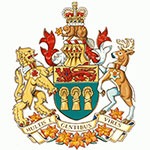Drug Treatment Court
Provincial Court | SaskatchewanCourts of Saskatchewan
Drug Treatment Court
Provincial Court
There are two Drug Treatment Courts: Regina’s began operating in 2006 and Moose Jaw’s was established in 2009.
An accused who has a substance abuse problem that played a role in their offending, who meets the eligibility criteria, and has successfully completed a one-month assessment, may enter the drug treatment court program. The accused must plead guilty to certain offence(s) upon being accepted into the program. These courts use a delayed sentencing model; the treatment program takes approximately one year and upon graduation from the program, participants will receive a reduced sentence. The goal of Drug Treatment Courts is to assist offenders in finding sustained sobriety and address other criminogenic needs to break the cycle of involvement in the justice system.
In Regina, Drug Treatment Court is held on Tuesday mornings in Courtroom 7. A Pre-Court Meeting at 9:00 a.m. involves a dedicated Judge, Crown prosecutor, Legal Aid duty counsel, DTC Manager, addictions counsellor, nurse and probation officer meeting to discuss each participant’s progress and the best ways to encourage participants to succeed. Participants attend court at 10:30 a.m.
In Moose Jaw Drug Treatment Court is held on the first and third Thursday afternoon in Courtoom 1. A Pre-Court Meeting at 1:00 p.m. involves a dedicated judge, Crown prosecutor, Legal Aid duty counsel, DTC Coordinator, addictions counsellor, and probation officer meeting to discuss each participant’s progress and the best ways to encourage participants to succeed. Participants attend at 2:00 p.m.
LOCATIONS
Drug Treatment Courts are located in two Saskatchewan cities:
Regina Drug Treatment Court
Tuesdays, 10:30 a.m. – Courtroom #7
Regina Provincial Court House, 1815 Smith Street
Moose Jaw Drug Treatment Court
1st & 3rd Thursdays, 2 p.m. – Courtroom #1
Moose Jaw Provincial Court House, Room 211, 110 Ominica Street West
Who It’s For
DTC is for:
- property-related offences;
- drug offences where the primary motivation is to support an addiction;
- administration of justice offences; and
- offenders facing a custodial sentence between 12 months and 2 years.
Who It’s Not For
DTC is not for:
- offences involving serious violence or sexual assault;
- family violence cases or offences involving or relating to children/youth;
- firearms offences;
- offences with a mandatory minimum sentence;
- profit-motivated commercial drug trafficking;
- offenders with a history of serious violence; or
- individuals who have been unsuccessful in DTC within the past six months, and those who have graduated from a Saskatchewan Drug Treatment Court
How it Works
The Drug Treatment Court is voluntary. To participate, individuals must:
- meet all eligibility criteria, Crown prosecutors screen potential participants;
- enter a guilty plea to some offences,
- waive the right to immediate sentencing and agree to abide by the terms of the program;
- follow detailed bail conditions setting out restrictions on activities and required conduct, including being subject to regular and random drug testing;
- report to the program centre for a one month assessment;
- be assigned to a case manager and an addiction counsellor;
- once successfully assessed, enter into an individualized recovery program designed by the program team; and
- appear before the DTC judge once a week or as required by the DTC judge.
How Long Does It Take
The DTC program takes between 12 and 18 months to complete. Each participant works with a case manager and an addiction counsellor to develop a comprehensive and realistic plan for recovery which includes:
- regular court appearances;
- individual and group counselling;
- frequent and random drug testing;
- multi-phased treatment for substance dependence which may include inpatient treatment
Track One – Transition
Track Two – Stabilization
Track Three – Maintenance
Graduation - completion of the Moral Reconation Therapy (MRT) program; and
- access to other appropriate services that support rehabilitation, such as life skills, upgrading education, employment training and job placement.
Successful completion of the treatment program will result in a reduced sentence. Participants who do not fully comply with their program may be subject to sanctions. Participants who fail to follow the treatment program will be sentenced by the court accordingly.
Drug Treatment Court Videos

